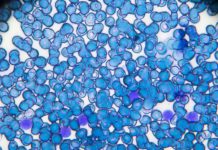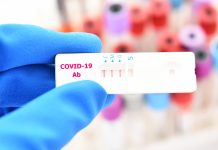A new personalised treatment has been discovered for the most common form of adult leukaemia helping patients live longer
The University of Leeds conducted a trial recognised as groundbreaking research by the New England Journal of Medicine. The results were presented at the 65th American Society of Hematology (ASH) Annual Meeting and Exposition in San Diego.
Tailored treatment
The clinical trial FLAIR, funded by Cancer Research UK, Janssen Research & Development, LLC, and AbbVie Pharmaceutical Research and Development, has demonstrated significant advancements in treating previously untreated chronic lymphocytic leukaemia (CLL).
The trial focus is tailored treatment duration for individual patients based on regular blood tests, leading to better and improved outcomes.
FLAIR, a phase three randomised trial, involves over 1,500 CLL patients across 100 UK hospitals and employs a personalised approach by managing cancer growth blockers, Ibrutinib and Venetoclax (I+V), over varied durations.
The treatment significantly outperformed standard approaches, especially benefiting patients with genetic mutations and poorer responses to traditional therapies.
Results and survival rates
Lead author Professor Peter Hillmen from the University of Leeds reported that the tailored treatment approach resulted in more than 95% of patients achieving remission three years after starting treatment. Progression-free and overall survival rates were notably higher than those observed with standard CLL treatments.
Regular blood tests, rather than invasive bone marrow tests
Regular blood tests, rather than invasive bone marrow tests, were pivotal in monitoring patients’ responses to I+V. This innovative, measurable residual disease (MRD) technique allowed clinicians to track the remaining cancer cells, providing a more up-to-date picture of treatment effectiveness.
Patients on the personalised approach exhibited no detectable leukaemia in their blood or bone marrow at the end of treatment, offering a more optimistic prognosis.
Lead author Peter Hillmen, Professor of Experimental Haematology in the University of Leeds’ School of Medicine, and Honorary Consultant Haematologist at Leeds Teaching Hospitals NHS Trust, said: “Our findings show that, for this group of patients, the treatment is very effective at tackling their disease and is well tolerated by them.
“the treatment is very effective at tackling their disease and is well tolerated by them.”
“Most patients treated with the new combination have no detectable leukaemia in their blood or bone marrow by the end of treatment which is better than with previous treatments and is very encouraging.”
Future standard of care
The FLAIR trial showed that personalising treatment duration based on blood tests is as effective as using bone marrow tests, with the added benefits of being less invasive and quicker.
The collaborative effort involving researchers, healthcare professionals, funders, and patients signifies a potential shift towards a new standard of care in CLL treatment.
In the efforts to revolutionise chronic lymphocytic leukaemia treatment, the FLAIR trial’s results highlight the effectiveness of tailoring therapy duration for each patient based on regular blood tests.
With promising survival rates and improved quality of life, if adopted as the new standard of care, this personalised approach could mark a significant step forward in the fight against CLL.
Editor's Recommended Articles
-
Must Read >> Nutrition research for acute childhood leukaemia















